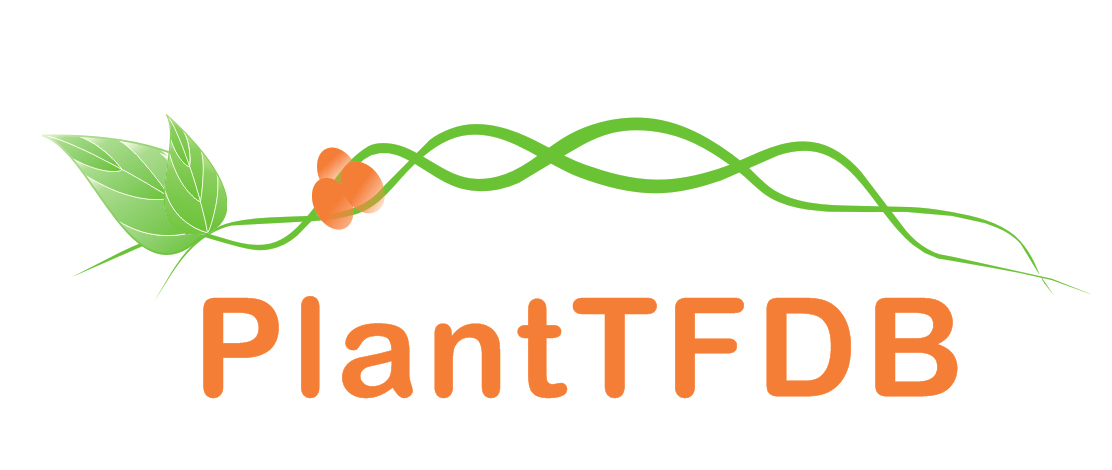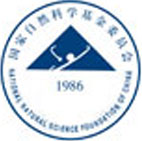 |
Plant Transcription
Factor Database
|
Transcription Factor Information
|
Basic
Information? help
Back to Top |
| TF ID |
ONIVA07G09500.1 |
| Organism |
|
| Taxonomic ID |
|
| Taxonomic Lineage |
cellular organisms; Eukaryota; Viridiplantae; Streptophyta; Streptophytina; Embryophyta; Tracheophyta; Euphyllophyta; Spermatophyta; Magnoliophyta; Mesangiospermae; Liliopsida; Petrosaviidae; commelinids; Poales; Poaceae; BOP clade; Oryzoideae; Oryzeae; Oryzinae; Oryza
|
| Family |
ERF |
| Protein Properties |
Length: 239aa MW: 25357.1 Da PI: 9.8115 |
| Description |
ERF family protein |
| Gene Model |
| Gene Model ID |
Type |
Source |
Coding Sequence |
| ONIVA07G09500.1 | genome | OGE | View CDS |
|
| Signature Domain? help Back to Top |
 |
| No. |
Domain |
Score |
E-value |
Start |
End |
HMM Start |
HMM End |
| 1 | AP2 | 54 | 4.3e-17 | 77 | 126 | 3 | 55 |
AP2 3 ykGVrwdkkrgrWvAeIrdpsengkrkrfslgkfgtaeeAakaaiaarkkleg 55
+ GVr+++ +gr++AeIrd + ng +r+++g+f++ae Aa a+++a+++ +g
ONIVA07G09500.1 77 FIGVRRRP-WGRFAAEIRDSTRNG--ARVWIGTFDSAEAAAMAYDQAALSARG 126
57******.**********44465..***********************9998 PP
|
| Gene Ontology ? help Back to Top |
| GO Term |
GO Category |
GO Description |
| GO:0006355 | Biological Process | regulation of transcription, DNA-templated |
| GO:0005634 | Cellular Component | nucleus |
| GO:0003677 | Molecular Function | DNA binding |
| GO:0003700 | Molecular Function | transcription factor activity, sequence-specific DNA binding |
| Sequence ? help Back to Top |
| Protein Sequence Length: 239 aa
Download sequence Send
to blast |
MAEHFSHAGM YIGYTADAAA SSSSSSSSSS SSSSEMLRFD TGWPDETPAP SSVAGRRRSA 60
GGDHRQGRGQ TEAAAAFIGV RRRPWGRFAA EIRDSTRNGA RVWIGTFDSA EAAAMAYDQA 120
ALSARGAAAA LNFPVERVRE SLHALSLGAA GGSPVLALKR RHSKRKRRKK AELLAAAAAT 180
AATANATPQT RRISKSTELT TATTDEQKRF VVELEDLGAE YLEELLWLSE INGGSDPAD
|
| Nucleic Localization
Signal ? help
Back to Top |
 |
| No. |
Start |
End |
Sequence |
| 1 | 159 | 165 | RRHSKRK |
| 2 | 163 | 168 | KRKRRK |
| 3 | 163 | 169 | KRKRRKK |
| Functional Description ? help
Back to Top |
| Source |
Description |
| UniProt | Acts as a transcriptional activator. Binds to the GCC-box pathogenesis-related promoter element. Involved in the regulation of gene expression during the plant development, and/or mediated by stress factors and by components of stress signal transduction pathways. Seems to be a key integrator of ethylene and jasmonate signals in the regulation of ethylene/jasmonate-dependent defenses. Can mediate resistance to necrotizing fungi (Botrytis cinerea and Plectosphaerella cucumerina) and to soil borne fungi (Fusarium oxysporum conglutinans and Fusiarium oxysporum lycopersici), but probably not to necrotizing bacteria (Pseudomonas syringae tomato). {ECO:0000269|PubMed:11950980, ECO:0000269|PubMed:12060224, ECO:0000269|PubMed:12509529, ECO:0000269|PubMed:15242170, ECO:0000269|PubMed:9851977}. |
| UniProt | May act as a transcriptional activator. Binds to the GCC-box pathogenesis-related promoter element. Involved in the regulation of gene expression by stress factors and by components of stress signal transduction pathways (By similarity). {ECO:0000250, ECO:0000269|PubMed:11950980}. |
| Regulation -- Description ? help
Back to Top |
| Source |
Description |
| UniProt | INDUCTION: Induced by Pseudomonas syringae tomato (both virulent and avirulent avrRpt2 strains), independently of PAD4. Ethylene induction is completely dependent on functional ETHYLENE-INSENSITIVE2 (EIN2), ETHYLENE-INSENSITIVE3 (EIN3), which is itself a transcription factor and CORONATIVE-INSENSITIVE1 (COI1) proteins. Induction by jasmonate, B.cinerea or F.oxysporum as well as the synergistic induction by ethylene and jasmonate requires EIN2 and COI1. Induction by methyl jasmonate (MeJA) is independent of JAR1. Induction by salicylic acid (SA) is dependent on NPR1 but not on PAD4. Seems not to be induced by Alternaria brassicicola. {ECO:0000269|PubMed:11950980, ECO:0000269|PubMed:12060224, ECO:0000269|PubMed:12509529, ECO:0000269|PubMed:12805630, ECO:0000269|PubMed:15242170, ECO:0000269|PubMed:9851977}. |
| UniProt | INDUCTION: Weakly induced by Pseudomonas syringae tomato (avirulent avrRpt2 strain), but also by mock inoculation. {ECO:0000269|PubMed:11950980}. |
| Annotation --
Nucleotide ? help
Back to Top |
| Source |
Hit ID |
E-value |
Description |
| GenBank | AK062612 | 0.0 | AK062612.1 Oryza sativa Japonica Group cDNA clone:001-105-A10, full insert sequence. |
| GenBank | AP005325 | 0.0 | AP005325.5 Oryza sativa Japonica Group genomic DNA, chromosome 7, PAC clone:P0710F09. |
| GenBank | AP014963 | 0.0 | AP014963.1 Oryza sativa Japonica Group DNA, chromosome 7, cultivar: Nipponbare, complete sequence. |
| GenBank | CP012615 | 0.0 | CP012615.1 Oryza sativa Indica Group cultivar RP Bio-226 chromosome 7 sequence. |
| Publications
? help Back to Top |
- Zarate SI,Kempema LA,Walling LL
Silverleaf whitefly induces salicylic acid defenses and suppresses effectual jasmonic acid defenses.
Plant Physiol., 2007. 143(2): p. 866-75
[PMID:17189328] - Vahabi K,Camehl I,Sherameti I,Oelmüller R
Growth of Arabidopsis seedlings on high fungal doses of Piriformospora indica has little effect on plant performance, stress, and defense gene expression in spite of elevated jasmonic acid and jasmonic acid-isoleucine levels in the roots.
Plant Signal Behav, 2013. 8(11): p. e26301
[PMID:24047645] - Kim HG, et al.
GDSL LIPASE1 modulates plant immunity through feedback regulation of ethylene signaling.
Plant Physiol., 2013. 163(4): p. 1776-91
[PMID:24170202] - Li J,Jia H,Wang J
cGMP and ethylene are involved in maintaining ion homeostasis under salt stress in Arabidopsis roots.
Plant Cell Rep., 2014. 33(3): p. 447-59
[PMID:24306353] - Ding Y, et al.
Four distinct types of dehydration stress memory genes in Arabidopsis thaliana.
BMC Plant Biol., 2013. 13: p. 229
[PMID:24377444] - Zhong S, et al.
Ethylene-orchestrated circuitry coordinates a seedling's response to soil cover and etiolated growth.
Proc. Natl. Acad. Sci. U.S.A., 2014. 111(11): p. 3913-20
[PMID:24599595] - Kim HG, et al.
GDSL lipase 1 regulates ethylene signaling and ethylene-associated systemic immunity in Arabidopsis.
FEBS Lett., 2014. 588(9): p. 1652-8
[PMID:24631536] - Schellingen K, et al.
Cadmium-induced ethylene production and responses in Arabidopsis thaliana rely on ACS2 and ACS6 gene expression.
BMC Plant Biol., 2014. 14: p. 214
[PMID:25082369] - Ellouzi H, et al.
A comparative study of the early osmotic, ionic, redox and hormonal signaling response in leaves and roots of two halophytes and a glycophyte to salinity.
Planta, 2014. 240(6): p. 1299-317
[PMID:25156490] - Nguyen AH, et al.
Loss of Arabidopsis 5'-3' Exoribonuclease AtXRN4 Function Enhances Heat Stress Tolerance of Plants Subjected to Severe Heat Stress.
Plant Cell Physiol., 2015. 56(9): p. 1762-72
[PMID:26136597] - Zhang H, et al.
Arabidopsis AtERF15 positively regulates immunity against Pseudomonas syringae pv. tomato DC3000 and Botrytis cinerea.
Front Plant Sci, 2015. 6: p. 686
[PMID:26388886] - Cheng MC,Kuo WC,Wang YM,Chen HY,Lin TP
UBC18 mediates ERF1 degradation under light-dark cycles.
New Phytol., 2017. 213(3): p. 1156-1167
[PMID:27787902] - Timmermann T, et al.
Paraburkholderia phytofirmans PsJN Protects Arabidopsis thaliana Against a Virulent Strain of Pseudomonas syringae Through the Activation of Induced Resistance.
Mol. Plant Microbe Interact., 2017. 30(3): p. 215-230
[PMID:28118091] - Yu Y,Huang R
Integration of Ethylene and Light Signaling Affects Hypocotyl Growth in Arabidopsis.
Front Plant Sci, 2017. 8: p. 57
[PMID:28174592] - Lestari R, et al.
Overexpression of Hevea brasiliensis ethylene response factor HbERF-IXc5 enhances growth and tolerance to abiotic stress and affects laticifer differentiation.
Plant Biotechnol. J., 2018. 16(1): p. 322-336
[PMID:28626940] - Dinolfo MI,Castañares E,Stenglein SA
Resistance of Fusarium poae in Arabidopsis leaves requires mainly functional JA and ET signaling pathways.
Fungal Biol, 2017. 121(10): p. 841-848
[PMID:28889908]
|




